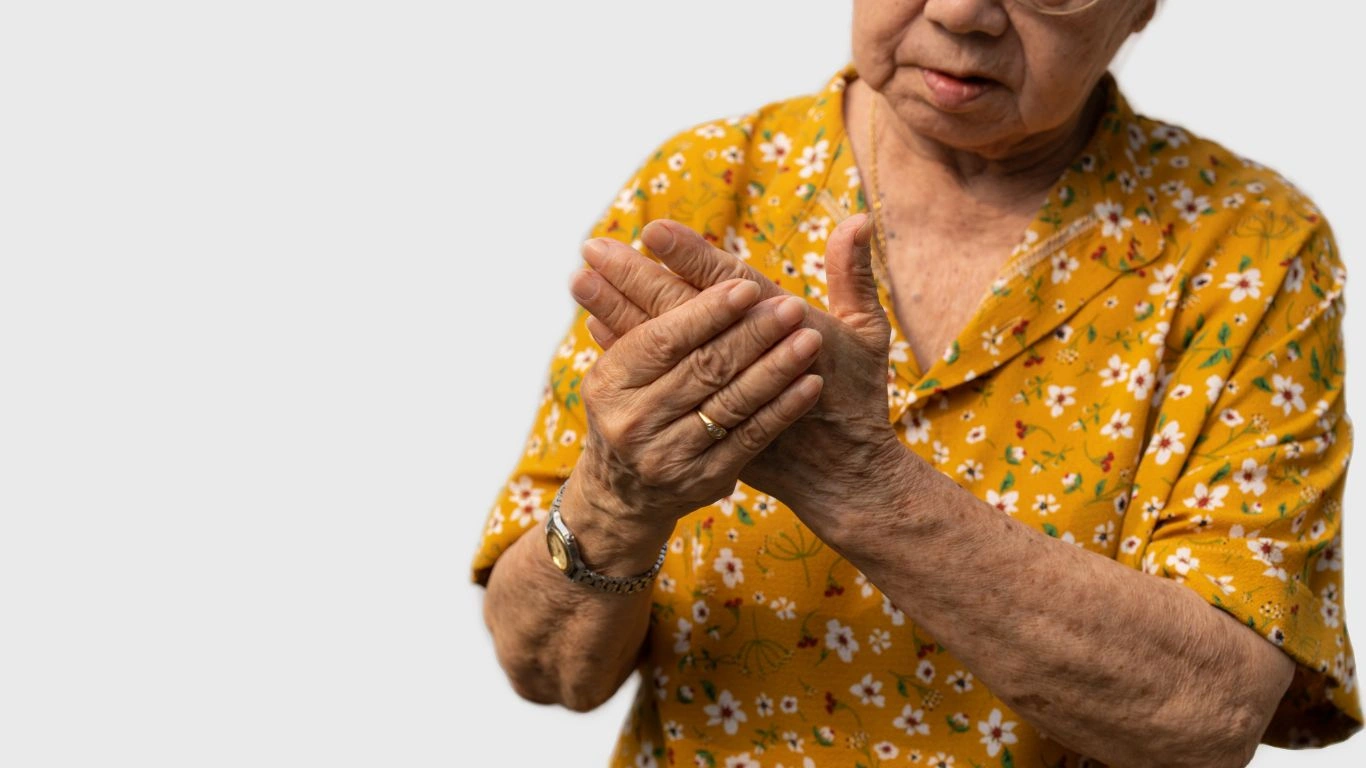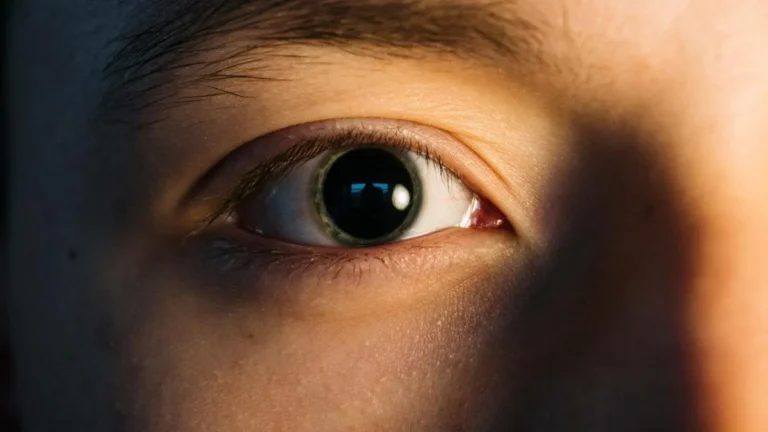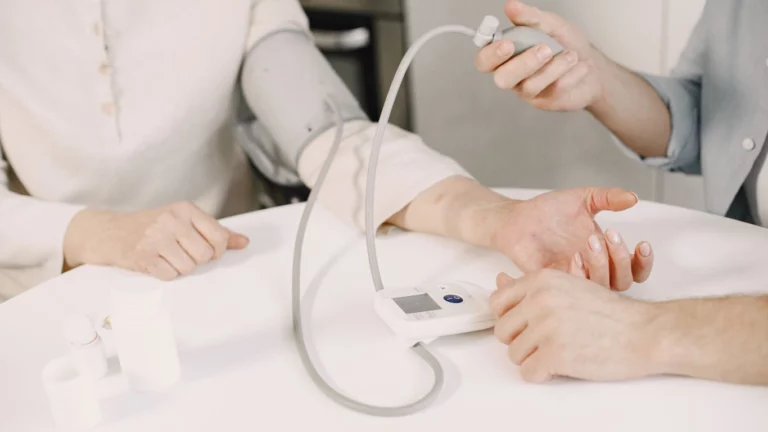Rheumatoid Arthritis & Mental Health: The Hidden Struggles You Must Know
Rheumatoid arthritis (RA) doesn’t just attack the joints—it takes a toll on the mind, too. I’ve seen it firsthand, not only in my patients but in myself as well. The constant pain, fatigue, and unpredictability of RA can create a mental and emotional storm that’s just as hard to navigate as the physical symptoms. If you’ve ever felt anxious, depressed, or mentally exhausted because of your RA, trust me, you’re not alone.
Rheumatoid Arthritis and Its Effects on Mental Health
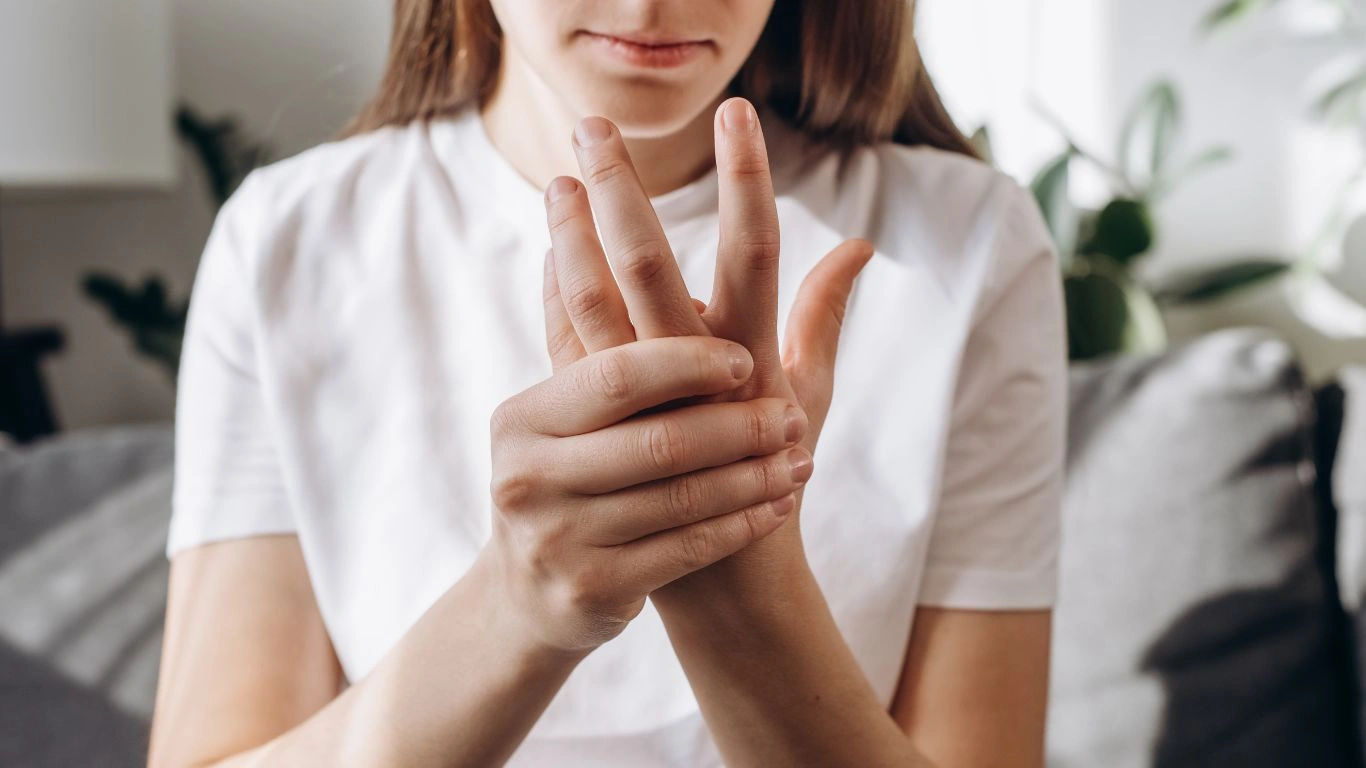
RA is often misunderstood as just a joint disease, but it’s so much more than that. The inflammation that attacks the body also affects the brain, leading to an increased risk of depression and anxiety. When I talk to my patients, I often hear the same frustrations—feeling isolated, struggling with the unpredictability of flare-ups, and dealing with the emotional weight of chronic pain.
It’s not just about feeling a little down now and then. Research shows that people with RA are twice as likely to experience major depression compared to those without the condition. That’s not a coincidence—it’s a direct result of the physical and emotional burden this disease brings.
Why Does RA Impact Mental Health So Deeply?
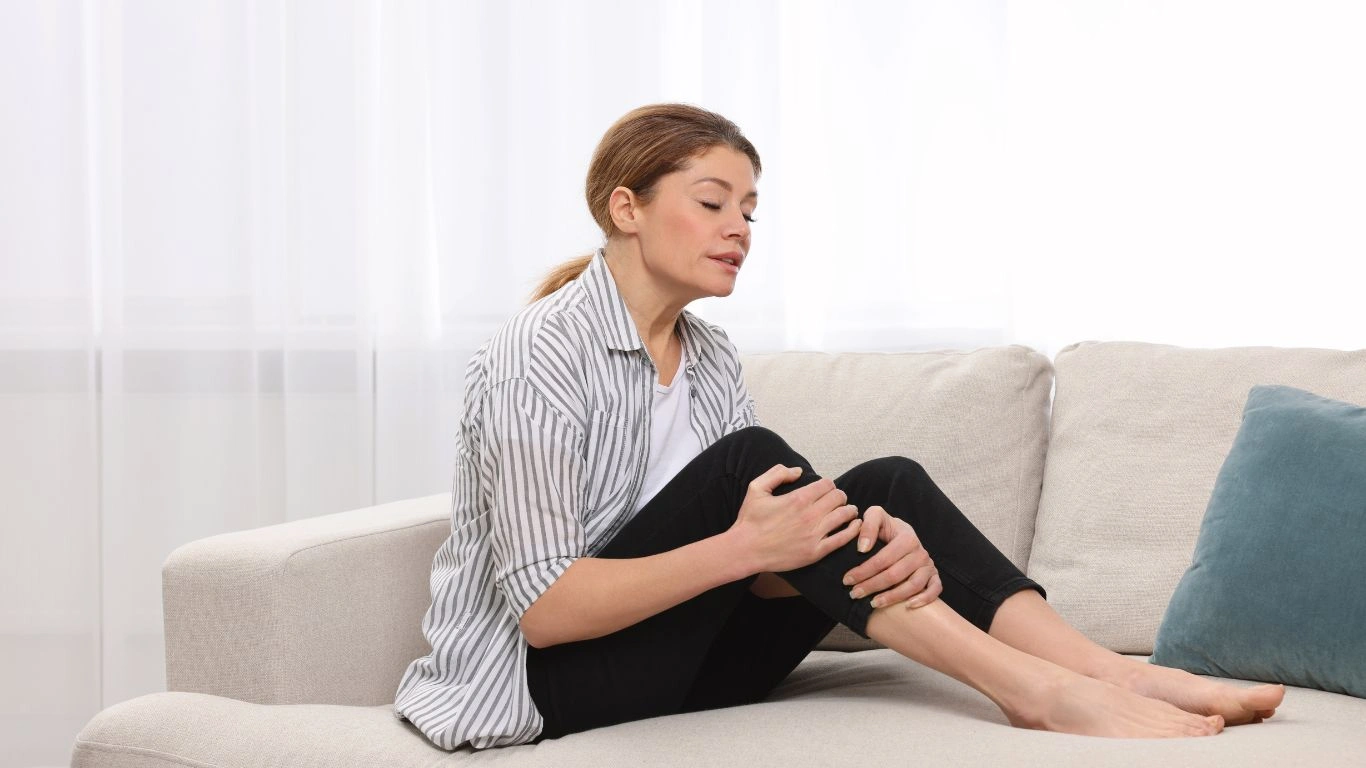
The Constant Pain Takes a Toll
Living with pain 24/7 is exhausting. It chips away at your patience, your energy, and your ability to stay positive. Even on so-called “good days,” there’s always a lingering discomfort. And on bad days? Well, those can feel like climbing a mountain with no summit in sight.
Chronic pain alters brain chemistry, increasing stress hormones like cortisol and reducing the production of serotonin and dopamine—the feel-good chemicals. This imbalance contributes to depression and anxiety, making it even harder to cope.
Fatigue Feels Like a Brick Wall
RA fatigue is not just being tired. It’s a full-body, bone-deep exhaustion that makes even the simplest tasks feel impossible. I’ve had days where getting out of bed felt like running a marathon. This kind of fatigue isn’t just frustrating—it’s isolating. When your body won’t cooperate, it’s easy to feel left out of life.
The Unpredictability Creates Anxiety
One of the most mentally draining aspects of RA is its unpredictability. Will today be a good day or a flare-up day? Will I be able to meet my friends, or will I have to cancel (again)? This uncertainty breeds anxiety, making it hard to plan anything without a lingering sense of dread.
Breaking the Stigma: Mental Health and RA Need to Be Talked About
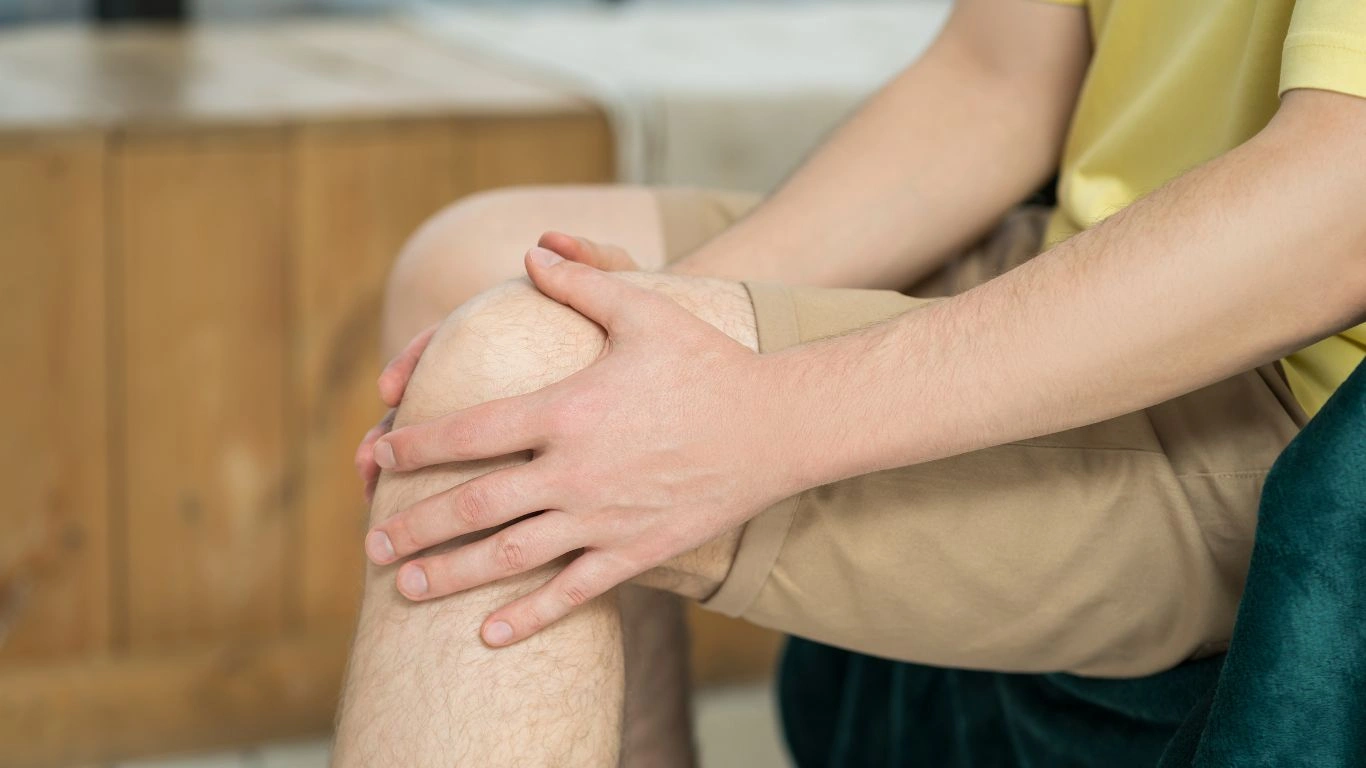
For the longest time, mental health was a taboo subject in the medical world, especially when it came to chronic illnesses like RA. People were expected to “tough it out” and focus only on physical symptoms. But ignoring the emotional impact doesn’t make it go away—it makes it worse.
Now, we know better. Addressing mental health is just as important as managing inflammation. Seeking support, whether through therapy, support groups, or simply talking with loved ones, can make a world of difference.
Ways to Support Mental Well-Being with RA
- Therapy: Cognitive-behavioral therapy (CBT) and other forms of counseling can help reframe negative thoughts and provide coping strategies.
- Medication: In some cases, antidepressants or anti-anxiety medications may be necessary to help rebalance brain chemistry.
- Mindfulness & Meditation: Practices like deep breathing, yoga, and guided meditation can help reduce stress and promote relaxation.
- Social Support: Connecting with others who understand what you’re going through can be incredibly validating and empowering.
How RA Can Change Your Sense of Self

One of the hardest things about rheumatoid arthritis is how much it changes your identity. Before RA, you might have been the go-getter, the active one, the person who never said no to an adventure. But when chronic pain and fatigue hit, you have to re-evaluate what you can and can’t do. And let me tell you—that’s a tough pill to swallow.
I remember the first time I had to turn down a hiking trip with friends. I thought, “No big deal, I’ll go next time.” But next time came and went, and so did the time after that. Eventually, I realized I had to adjust my expectations. That’s where the real emotional battle begins—learning to accept the new version of yourself without feeling like you’ve lost who you were.
Feeling Like a Burden
If you’ve ever hesitated to ask for help because you don’t want to be a burden, you’re not alone. I hear this from patients all the time, and I’ve felt it myself. RA forces you to rely on others in ways you never expected—whether it’s needing help with opening a jar or canceling plans at the last minute.
But here’s the truth: you are not a burden. The people who love you want to support you. Learning to accept help doesn’t mean you’re weak; it means you’re human.
The Emotional Rollercoaster of Flare-Ups

If you have RA, you know that flare-ups don’t just affect your body—they mess with your mind, too. One day, you’re managing okay, and the next, you wake up feeling like your joints have been set on fire. It’s frustrating. It’s exhausting. And it’s downright disheartening.
The Anxiety of Not Knowing When the Next Flare Will Hit
RA is unpredictable, and that uncertainty fuels anxiety. Will you be able to work today? Will you have to cancel plans again? This mental stress takes a toll, making it even harder to cope when the pain actually hits.
One thing that helps? Having a flare-up plan. I always tell my patients to prepare for those rough days in advance. Keep essentials within reach, have meals prepped, and communicate with your support system so they know what you need.
Guilt and Self-Blame
It’s easy to fall into the trap of blaming yourself. “Maybe if I exercised more…” “Maybe if I ate better…” But the truth is, RA is a complex autoimmune disease, and it’s not your fault. Instead of beating yourself up, focus on what you can do to manage your symptoms.
Practical Ways to Support Your Mental Health with RA
1. Stay Connected
Isolation is one of the biggest mental health challenges for people with RA. When you’re in pain, the last thing you want to do is socialize. But trust me—staying connected with friends, family, or even online support groups can make a huge difference.
2. Prioritize Sleep
Poor sleep and RA go hand in hand, but improving your sleep hygiene can help. Try sticking to a consistent bedtime, limiting screen time before bed, and using relaxation techniques to wind down.
3. Find an Outlet
Writing, painting, playing music—whatever helps you express your emotions, do it. Finding a creative outlet gives your mind a break from the stress of chronic illness.
4. Speak to a Mental Health Professional
There’s absolutely no shame in seeking professional help. A therapist who understands chronic illness can provide strategies to manage stress, anxiety, and depression.
RA affects more than just your body—it impacts your mind, your emotions, and your overall sense of self. But with the right support, coping strategies, and mindset shifts, you can take back control.
Case Studies & Real-Life Examples

It’s one thing to read about the connection between rheumatoid arthritis (RA) and mental health, but hearing real-life stories can make all the difference. Over the years, I’ve met countless patients who’ve struggled not just with pain but with the emotional burden of this disease. Let me share a few stories that truly highlight the mind-body connection.
Lisa’s Story: The Silent Battle with Depression
Lisa, a 42-year-old teacher, was diagnosed with RA five years ago. At first, she focused only on the physical symptoms—taking medications, adjusting her lifestyle, and trying every anti-inflammatory diet she could find. But what she didn’t expect was how deeply RA would affect her mental health.
“I didn’t realize how much my life had changed until I started avoiding my friends and staying in bed all weekend. I felt like a different person, and the worst part was, I thought I had to handle it alone,” Lisa told me during a consultation.
Once she began therapy and joined a local RA support group, her perspective shifted. “Talking to others who get it made me feel less alone,” she said. She now prioritizes her mental health just as much as her physical well-being.
Mark’s Journey: Coping with Anxiety and the Fear of the Unknown
Mark, a 35-year-old former athlete, struggled with anxiety after his RA diagnosis. He constantly worried about his future—would he still be able to work? Would he become dependent on others?
His biggest breakthrough came when he started practicing mindfulness. “It didn’t take away my pain, but it helped me stop obsessing over the what-ifs and focus on what I could control,” he said.
Key Takeaways: What You Need to Remember
RA is more than joint pain—it affects your entire well-being. Here are the main things to keep in mind:
- Your mental health matters just as much as your physical health. Don’t ignore the emotional toll of RA.
- Seeking help isn’t a weakness. Therapy, support groups, and even medication can be game-changers.
- You are not alone. Many people with RA struggle with anxiety and depression—support is out there.
- Small steps can make a big difference. Prioritizing sleep, mindfulness, and social connections can improve mental well-being.
FAQs
1. Can RA itself cause depression and anxiety?
Yes! Inflammation plays a role in mood regulation. RA can disrupt brain chemistry, leading to a higher risk of depression and anxiety.
2. What are some ways to cope with stress from RA?
Some effective strategies include mindfulness meditation, therapy, exercise (as tolerated), and connecting with a support group.
3. Should I talk to my doctor about my mental health?
Absolutely. Many rheumatologists now recognize the importance of mental health and can refer you to a specialist if needed.
Bonus: Additional Resources or DIY Tips
📌 DIY Tips for Managing RA-Related Mental Health Struggles
- Journaling: Writing about your feelings can help you process emotions and track patterns in your RA symptoms.
- Guided Meditation Apps: Apps like Calm and Headspace offer RA-friendly mindfulness techniques.
- Gentle Movement: Try yoga or tai chi to keep your body moving while reducing stress.
- Create a “RA Survival Kit”: Fill it with essentials like heating pads, comfort items, and calming teas.
Appendix: References, Disclaimer & Call to Action
📚 References
- Arthritis Foundation – Mental Health & RA
- NCBI – The Link Between RA and Depression
⚠️ Disclaimer
This article is for informational purposes only and is not a substitute for professional medical advice. Always consult your doctor for medical concerns.
💬 Join the Conversation!
Have you experienced mental health struggles with RA? Share your story in the comments or reach out for support—let’s navigate this together!

Camellia Wulansari is a dedicated Medical Assistant at a local clinic and a passionate health writer at Healthusias.com. With years of hands-on experience in patient care and a deep interest in preventive medicine, she bridges the gap between clinical knowledge and accessible health information. Camellia specializes in writing about digestive health, chronic conditions like GERD and hypertension, respiratory issues, and autoimmune diseases, aiming to empower readers with practical, easy-to-understand insights. When she’s not assisting patients or writing, you’ll find her enjoying quiet mornings with coffee and a medical journal in hand—or jamming to her favorite metal band, Lamb of God.

